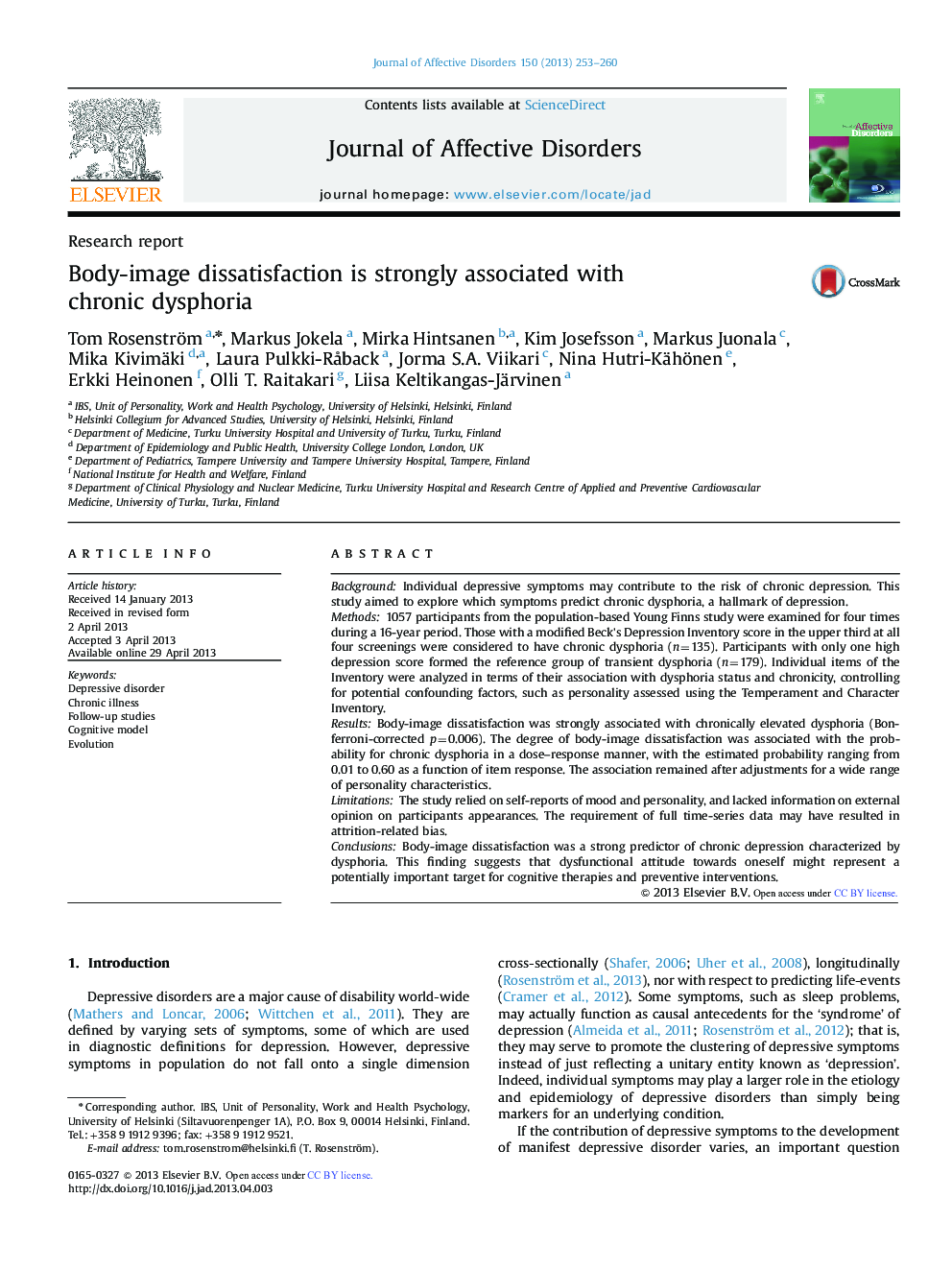| Article ID | Journal | Published Year | Pages | File Type |
|---|---|---|---|---|
| 6234206 | Journal of Affective Disorders | 2013 | 8 Pages |
BackgroundIndividual depressive symptoms may contribute to the risk of chronic depression. This study aimed to explore which symptoms predict chronic dysphoria, a hallmark of depression.Methods1057 participants from the population-based Young Finns study were examined for four times during a 16-year period. Those with a modified Beck's Depression Inventory score in the upper third at all four screenings were considered to have chronic dysphoria (n=135). Participants with only one high depression score formed the reference group of transient dysphoria (n=179). Individual items of the Inventory were analyzed in terms of their association with dysphoria status and chronicity, controlling for potential confounding factors, such as personality assessed using the Temperament and Character Inventory.ResultsBody-image dissatisfaction was strongly associated with chronically elevated dysphoria (Bonferroni-corrected p=0.006). The degree of body-image dissatisfaction was associated with the probability for chronic dysphoria in a dose-response manner, with the estimated probability ranging from 0.01 to 0.60 as a function of item response. The association remained after adjustments for a wide range of personality characteristics.LimitationsThe study relied on self-reports of mood and personality, and lacked information on external opinion on participants appearances. The requirement of full time-series data may have resulted in attrition-related bias.ConclusionsBody-image dissatisfaction was a strong predictor of chronic depression characterized by dysphoria. This finding suggests that dysfunctional attitude towards oneself might represent a potentially important target for cognitive therapies and preventive interventions.
